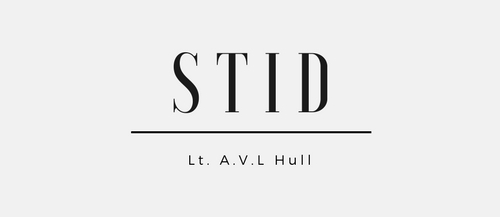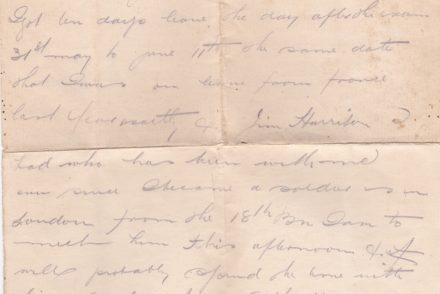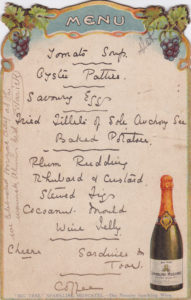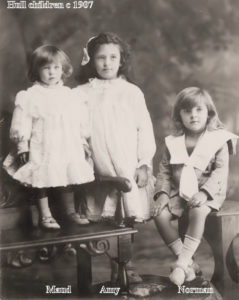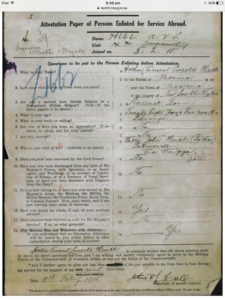France, Sept. 1, 1916
Dear Amy,
I got a letter from you a couple of days ago. It’s a long time since I came away and seems further back than it is and your letters are a glimpse of home for me and very welcome.
We have seen a little more of France. It’s very pretty, heavily peopled and fertile. In some districts the villages are as close as farms at home. All the little towns have big churches. R.C. – very showy inside. In some places they put hyphens in the names of two towns because they are so close.
The villages are pretty dirty usually and the people are not particular about personal cleanliness in body or mind, but the country is very pretty. All trees appear to have been planted and are pruned for wood. It’s hilly country mostly where we have been and it’s cut into small farms. It has a checkerboard look about it. There are no fences except for yards about houses. They make a lot of hedges and ditches. Wheat seems to be the principle grain but there is plenty of barley, oats, spuds peas, beans, hops – a lot of hops because they have beer in every house. They use it as we do tea. Wild poppies, wall flowers, buttercups, daisies, cornflowers- most of them the same as we have at home. That old saying that “booksters” ?? have about everything different on the other side of the world is not true.
Clover, barley, grass, corkscrew, as they are at home.
Their birds cannot hold a candle to ours. The lark is the only singer I’ve heard here. As for the womenfolk, they are not as nice as ours, either. Under ordinary circumstances it would be fairly hard to distinguish between Belgium and French and here, of course, we are close to the border. The people probably change gradually.
They breed rabbits to eat but there are a few running wild and some hares, but they are rare. The mole is here and he is hard to dig out of his burrow but can dig along as fast as any man can dig but he gets washed out sometimes. He is a very powerful little chap – something of a cross between a rat and a porcupine.
There are miles and miles of chalk country that has tunnels washed into it- something like the Jenolan Caves. Still the chalk is pure and soft and great for cleaning metals.
On one front where we were fighting there are some chalk pits made by explosions. The biggest is 70’ deep by 260’ across. There are hundreds about 40’ by 70’ and millions ranging from a foot or so up. It’s astonishing how we smash everything else up while we are smashing each other. When a town has been a battlefield it ceases to be. Hardly two bricks are left together. Wagons, binders, plows etc get pulverised. Mother earth gets torn and forests almost go up in steam still the little animal, man foes ahead. He is certainly terrible and wonderfully made and would tackle an earthquake almost if it came in his way once he gets on the warpath.
When it comes to this class of work the Hun is only a cad at rock bottom- usually quits to save his cadlike hide and our men are manly enough to take prisoners but I’ll bet my hide the enemy gets no prisoners who are not injured. We see many Germans who have thrown in the sponge who say Fritz is no good. English good. He is a contemptible cuss. He isn’t half as fond of his saw-edged bayonet as his cruel acts would make people believe and would as soon run as use it. I think it has been made for sawing wood. We see lots of his gear and it’s not so good as ours- cheap and nasty is branded all over it. I saw a picture in LIFE of a Fokker behind one of our machines. It’s rot. They usually fight then run. Our planes are always up aloft and they boss with a big margin. It’s really wonderful the contempt they have for the Bosh plane. I saw one Hun one day pause as if not sure about running away and our fellow rushing at him at about 100 miles an hour. The Hun turned three somersaults when a collision seemed about. He fell a long way. Finally righted and got away, but he was well marked.
Claptrap finished.
Love to all, Stid
